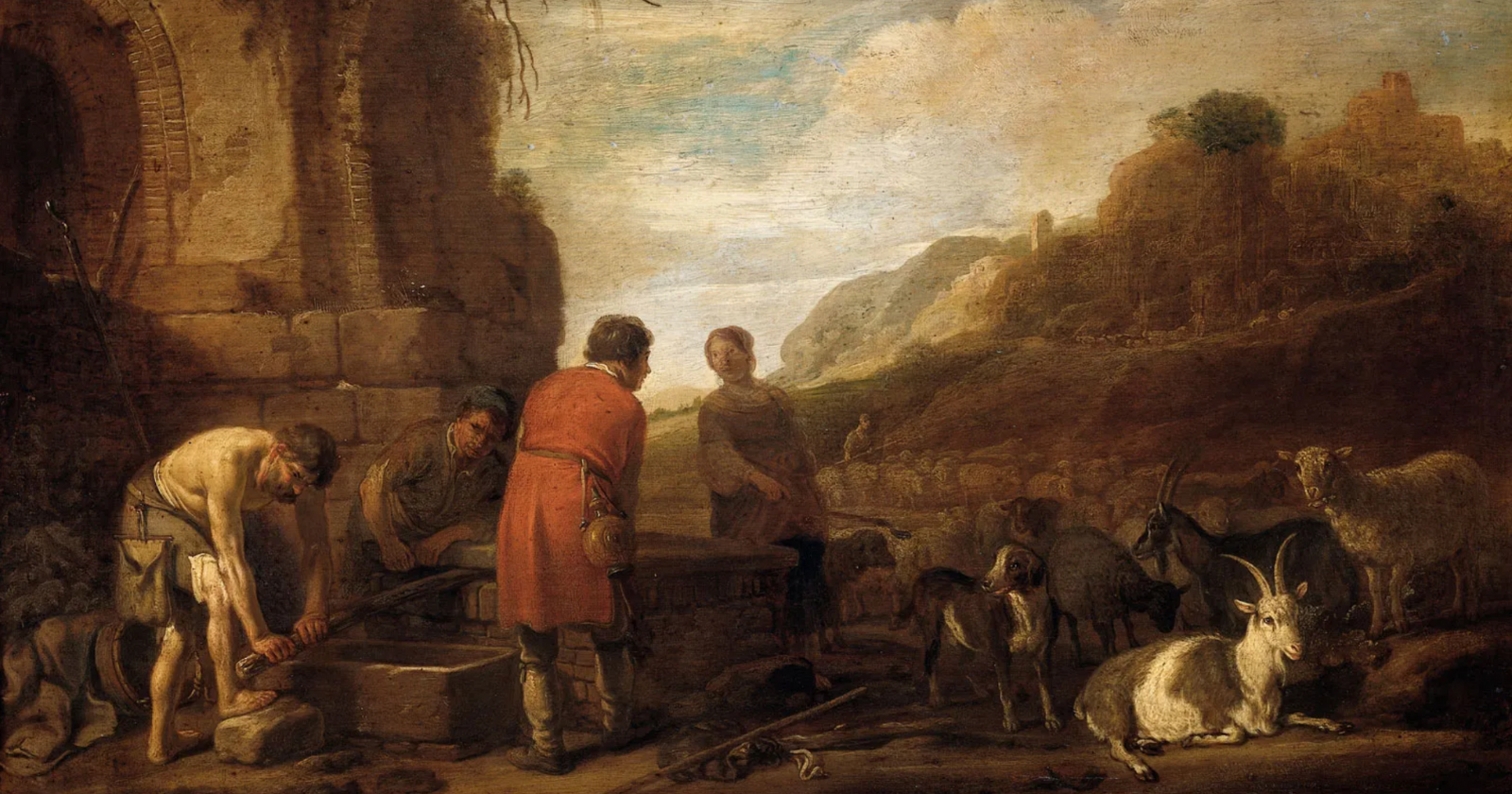Have you ever felt like you’re wrestling with life, grappling with challenges that test your spirit and resolve?
The story of Jacob’s transformation is a powerful reminder that personal growth often comes from our toughest battles.
Jacob, who literally wrestled with God, emerged not only with a new name but also a renewed sense of purpose and faith.
In this piece, we will meticulously dissect Jacob’s story, explore how God molded his character and the key messages emanating from his narrative.
Whether you’re seeking a deeper faith or striving for personal change, Jacob’s story offers timeless insights into overcoming obstacles and evolving into the person you’re meant to be.
Jacob’s transformation
Jacob’s journey, chronicled in the Bible, is a compelling narrative of transformation — something that shows how faith and personal growth intertwine.
His life provides a blueprint for spiritual self-improvement, demonstrating the potential for change and renewal.
Jacob, known initially for his deceit and manipulation, undergoes a profound transformation.
His initial image as a trickster evolves into that of a man who wrestles with God and is renamed Israel, which translates to “one who struggles with God.”
This momentous encounter marks a significant turning point in his life.
Jacob’s wrestling with God mirrors our own internal wrestles – our struggles with self-doubt, fear, and faith.
In this context, the wrestling symbolizes Jacob’s struggle to surrender his will to God’s plan. It represents our internal battles to let go of our plans and submit to divine guidance.
1. Transformation is a process, not an event
The first and perhaps most striking lesson from Jacob’s story is that transformation is a process, not a one-time event.
Jacob’s journey from being a manipulative trickster to a man of faith was not instantaneous.
It involved trials, tribulations, and wrestling with God Himself.
And guess what?
This process was not easy or straightforward. There were setbacks, moments of doubt, and periods of struggle. But through perseverance and faith, Jacob managed to transform himself into a better person.
That’s why I believe this lesson resonates with us today.
Personal growth and faith-building are ongoing processes that require time, patience, and perseverance.
We may face challenges and setbacks on our path, but like Jacob, we must remain steadfast in our pursuit of personal betterment and spiritual growth.
2. Wrestling with God leads to spiritual growth
Jacob’s wrestling match with God is arguably one of the most iconic moments in his story.
It marks a pivotal point in Jacob’s transformation, where he confronts his past, his actions, and his identity.
Note that the wrestling in this context signifies a deep internal struggle — an intense soul-searching that culminates in a profound spiritual awakening.
In this wrestling match, Jacob does not let go until he receives a blessing. Despite his hip being dislocated, he perseveres.
This resilience and determination symbolize the tenacity required in our personal journeys of faith and growth.
Just as Jacob wrestled with God, we too must grapple with our spiritual struggles.
These struggles might involve questioning our beliefs, confronting our past mistakes, or dealing with personal shortcomings.
And just like Jacob, it’s through this wrestling that we grow spiritually.
3. Change often comes from facing our fears
Before Jacob wrestled with God, he was preparing to face his estranged brother Esau.
Jacob was deeply afraid, haunted by the guilt of his past deceit. Yet, it’s in this context of fear that Jacob encountered God and experienced transformation.
Let’s admit it:
We often perceive fear as an obstacle, something to avoid. However, Jacob’s story encourages us to view fear differently.
Instead of preventing growth, fear can actually catalyze it. It’s when we are willing to face our fears that we can truly begin to transform.
In Jacob’s case, it was the fear of facing his past and the possibility of Esau’s revenge that led him to seek God’s blessing. In the act of wrestling with God, Jacob confronted his fear and emerged transformed.
This lesson is as relevant today as it was during Jacob’s time. We all have fears and insecurities that hold us back.
However, if we confront these fears, like Jacob did, I’m sure we can experience tremendous growth and deepen our faith.
4. Reconciliation is a key aspect of transformation
Have you ever pondered on the power of reconciliation in our journey to personal growth and building faith?
As I mentioned, after the wrestling match with God, Jacob reconciled with his brother Esau.
Despite his fear, he chose to face his past actions and sought forgiveness.
Jacob’s reconciliation with Esau was a significant part of his transformation.
It was the moment he acknowledged his mistakes, asked for forgiveness, and made peace with his past. This act of reconciliation allowed him to shed his guilt and move forward in his spiritual journey.
In our lives, we may have relationships that are strained or broken due to past mistakes. Much like Jacob, seeking reconciliation in these relationships can be a powerful step in our personal growth and faith journey.
It requires humility, courage, and an acknowledgement of our wrongdoings – qualities that contribute to character development and spiritual maturity.
Reconciliation, therefore, is not just about mending relationships. It’s about personal transformation and spiritual growth.
Insightful note: The act of reconciliation is considered a crucial step towards healing and spiritual growth in many religious teachings.
5. Personal growth involves a change of identity
In Jacob’s story, transformation was not just about changing actions or attitudes. It involved a change of identity.
After wrestling with God, Jacob was given a new name – Israel. This new name symbolized his changed character and his new status as someone who struggled with God and overcame.
This change of name signifies the deep and profound nature of personal transformation. It’s not merely about altering our external actions or behaviors; it encompasses our very identity.
Here are some key implications of this:
- A deep, internal change is crucial for authentic personal growth.
- Personal transformation often involves redefining our self-perception.
- Our spiritual journey can lead to a new sense of identity.
Equally important: Transformation is not about becoming someone different, but about becoming the best version of ourselves.
Like Jacob, we can embrace our spiritual journey and allow it to shape us into better individuals.
6. Transformation requires divine intervention
We cannot talk about Jacob’s transformation without acknowledging the divine intervention in his life.
After all, it was God who wrestled with Jacob, transformed him, and gave him a new identity, right?
Therefore, this divine intervention was pivotal in Jacob’s journey.
Often, we may feel that personal growth and spiritual development are solely reliant on our efforts. However, Jacob’s story reminds us that divine intervention plays a vital role in our transformation.
Similar to Jacob, we need God’s grace and guidance in our lives. It is through His divine intervention that we can truly transform and grow.
We may strive for personal improvement, but it is God who shapes us and molds us according to His purpose.
7. Transformation is possible for everyone
Finally, let’s finish this exploration with another question:
Have you ever felt like you’re beyond redemption? Have you questioned if you could ever change your ways and grow as a person?
If so, Jacob’s story is a beacon of hope.
Because Jacob wasn’t a perfect man. He lied, cheated, and manipulated to get what he wanted.
Yet, he was chosen by God, transformed, and became a patriarch of Israel.
And today, his life stands as a testament to the fact that transformation is possible for everyone, regardless of our past.
Personal growth and spiritual development aren’t reserved for saints or flawless individuals. They are accessible to all of us – flawed, imperfect human beings.
Like Jacob, we too can embark on a journey of transformation and grow in our faith.
So, the next time you doubt your ability to change and grow, remember Jacob’s story.
Be reminded that no one is beyond the reach of transformation. With faith and perseverance, we can all experience personal growth and spiritual development.
Are you ready for your transformation?
The story of Jacob’s transformation offers powerful lessons in faith, personal growth, and resilience. It reminds us that wrestling with our challenges is a part of our growth journey.
What’s more, it nudges us to persist in the face of adversity, to embrace change, and to let faith be our guiding force.
Seeing Jacob’s transformation unfold, we understand that it’s through our struggles we truly grow. As Jacob did, we too can transform, change, and learn through our experiences.
Let’s take these lessons from Jacob’s life and apply them to our own. The road to transformation may be fraught with challenges, but remember:
Just as Jacob emerged from his struggle as Israel, you too can emerge from your struggles stronger and more resilient.









